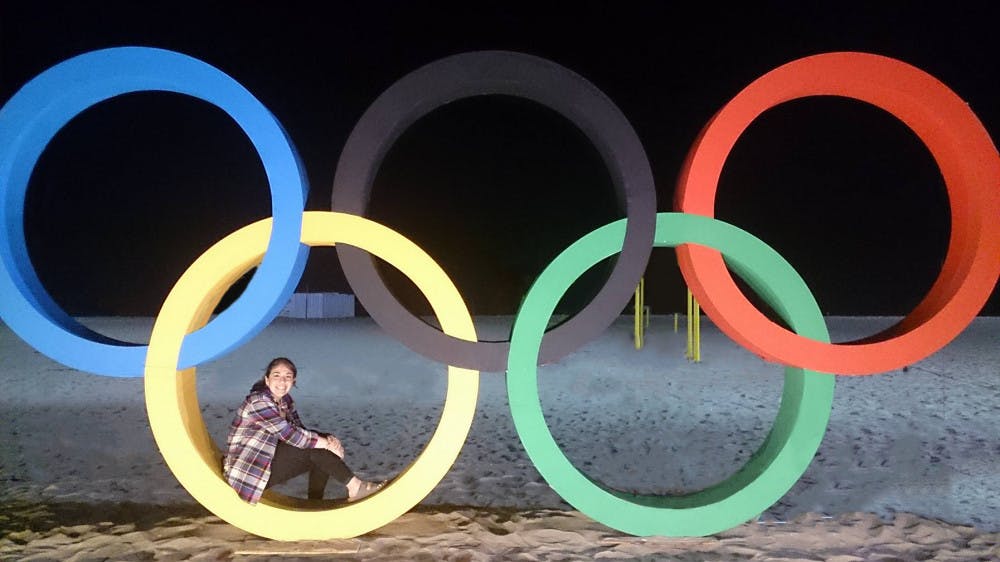By Elise Schoening
Features Editor
Every four years, the summer Olympics rolls around like clockwork. We set our DVRs to record the Final Five gymnasts and watch from home as Michael Phelps breaks world records yet again.
This year, junior graphic design and environmental studies double major Melissa Natividade, who is also a staff writer for The Signal, had a sideline seat for the action. Having spent her summer vacation as an Olympic translator in Rio de Janeiro, Brazil, Natividade was able to score tickets to the men’s soccer finale and greet Olympic athletes herself.
“This entire experience was hands down the best experience of my life,” Natividade said. “It was adventurous, it was exhilarating… it made history.”
Natividade, whose family originates from the South American country, has spent many a summer on the beaches of Brazil. This summer, she just happened to be in the right place at the right time. With only days left in her annual visit to Brazil, a friend forwarded her an email calling for individuals to work as translators for the Olympics. The requirements? Applicants only needed to be 18 years of age and demonstrate language proficiency in one of over 30 languages.
Natividade speaks English, Portuguese, Spanish, Italian and Japanese, making her an ideal candidate for the job. At the push of a friend, she submitted her application and was accepted just two days before her scheduled flight home to New Jersey.

Unsure of what to expect yet unwilling to pass up such a remarkable opportunity, Natividade rescheduled her flight home and prepared to experience her first Olympic Games.
For the following few weeks, Natividade utilized her skills as a translator. She was compensated 3,000 Brazilian reais, or $916, for her work.
According to the Rio Olympics website, over 70,000 people were recruited to work at this year’s games. Of them, nearly 8,000 were linguistic specialists like Natividade, who were tasked with a variety of roles from accompanying athletes to aiding press conferences and competitions.
Natividade’s first night of work was the opening ceremony — a night she is unlikely to forget.
“It was a night that left its mark on a girl who doesn’t easily get emotional, but couldn’t and didn’t even try to contain the marathon of feelings racing through her that night,” Natividade said.
The Olympic workers had no set schedule. Instead, their workweek shifted on a daily basis. Natividade was placed wherever additional help was needed. When she first started, Natividade was stationed at the Olympic Village, working at security checkpoints to keep the lines moving smoothly. Later on, she was stationed on the sidelines of Olympic competitions and trusted with translating for the athletes, along with other responsibilities.

“I would literally be in firsthand contact with the most incredible people, like the USA Swim team, Usain Bolt and Allyson Felix,” Natividade said. “It was the most surreal thing to see these people that I grew up watching on the TV right in front of me. Even if all I got to say to them was ‘right this way (enter Olympian’s name).’”
On her days off, Natividade often opted to stay on site and watch countries vie for victory. Because of her status as a translator, Natividade was able to land tickets to a handful of sold-out events. She watched tennis, gymnastics, beach volleyball, soccer and even mountain biking, but the most she ever paid for a ticket was $20.
“I’ve always been a big fan of the games and have watched it ever since I was teeny,” Natividade said. “But it was definitely beyond anything I could have imagined as an outsider going in. It’s so much more than just individual athletes competing to be the best in the world. It’s more of a camaraderie… an opportunity to come in contact with the people that share the same passion and dedication as you.”







